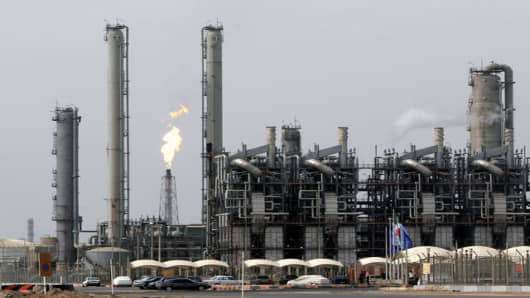Oil fell $2 Friday after Iraq swiftly restarted a crude pipeline system that had been hit by a bomb attack the day before.
U.S. light, sweet crude settled down $1.96 at $105.62 a barrel, erasing gains made Thursday after the attack on the pipeline feeding the Basra export terminal interrupted flows from southern Iraq for the first time since 2004.
London Brent crude settled down $1.23 at $103.77 a barrel.
A four-day-old Iraqi army crackdown on Shi'ite cleric Moqtada al-Sadr's Mehdi Army in Basra, Iraq's gateway to the Gulf, has ignited clashes across the south and has kept the oil industry on edge.
Flows through the southern pipeline system, which normally pumps 1.5 million barrels per day (bpd) of crude to the Basra port, were restored after saboteurs bombed part of the system Thursday. Officials said the two main pipelines that make up the system were not damaged.
Oil's losses Friday ended three straight sessions of gains and came alongside profit-taking in other commodities markets ahead of the end of the quarter next week.
"You can't discount the Iraqi oil flow returning to normal as a reason for crude oil's fall," said Eric Wittenauer, an analyst at Wachovia Securities in St. Louis, Mo.
"There is also profit-taking after three days of substantial gains on crude ... At the same time, oil is moving down with gold, which has fallen over $20, and other base metals are lower as well."
The weak U.S. dollar and rising cash flows from hedge funds helped send crude oil prices to a record high of $111.80 a barrel in mid-March.
While concerns about the economic health of top oil consumer the United States linger, analysts said Iraqi pipeline bombing could stir worries about the stability of supplies from the OPEC nation.
"It's not the loss of oil that drove prices higher, it's the return of instability to the region that concerns traders," said Robert Laughlin at MF Global.
In addition, some analysts are forecasting tight fundamentals despite the global economic problems.
"The supply and demand fundamentals in the oil market continue to be relatively tight. Even with a significantly slower global economy, world oil demand is expected to grow by at least 1 million barrels a day in 2008," said Deutsche Bank's chief energy economist Adam Sieminski.


